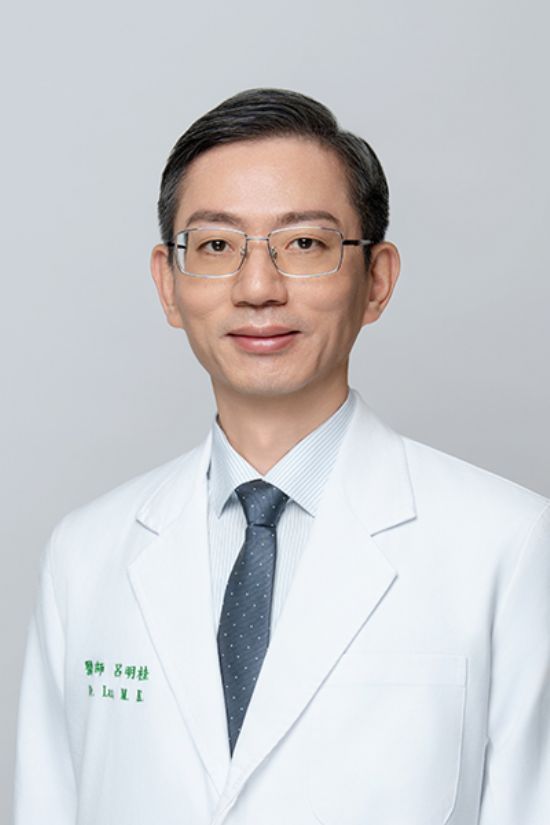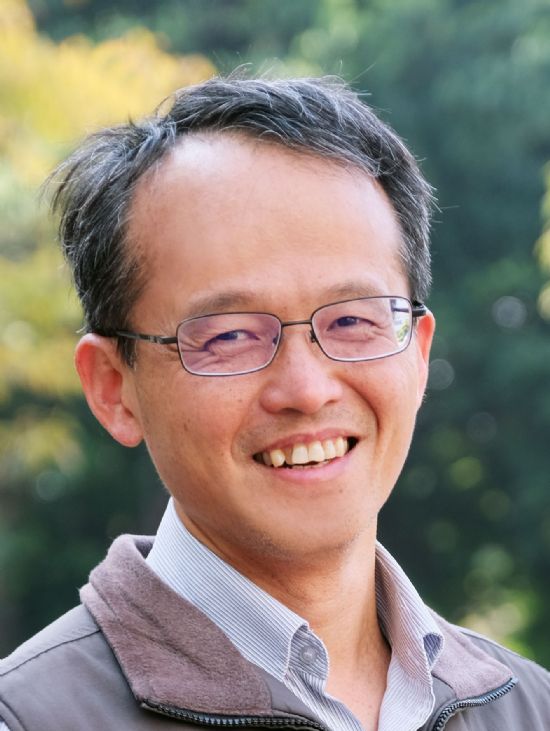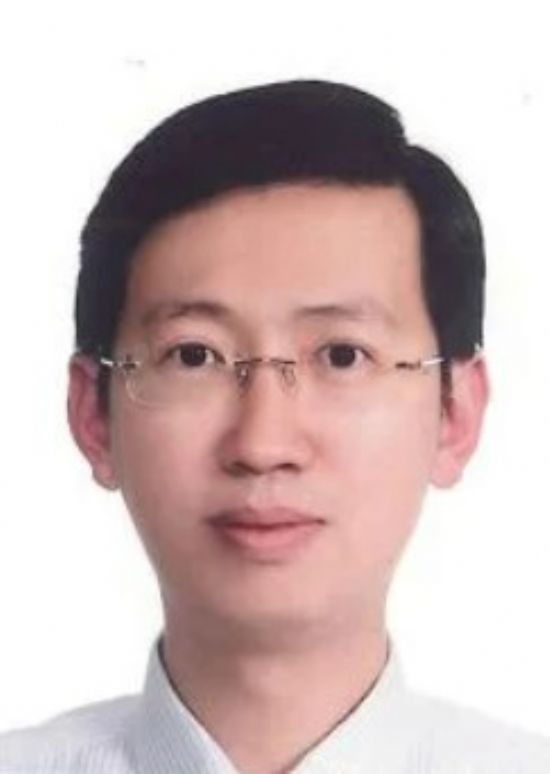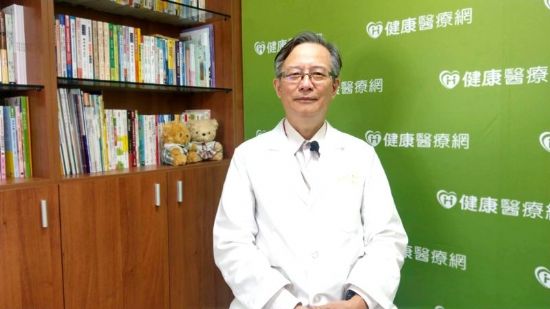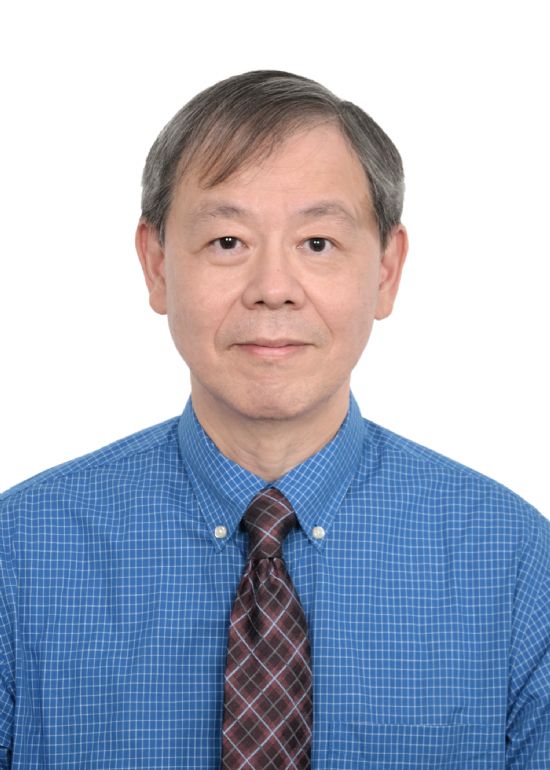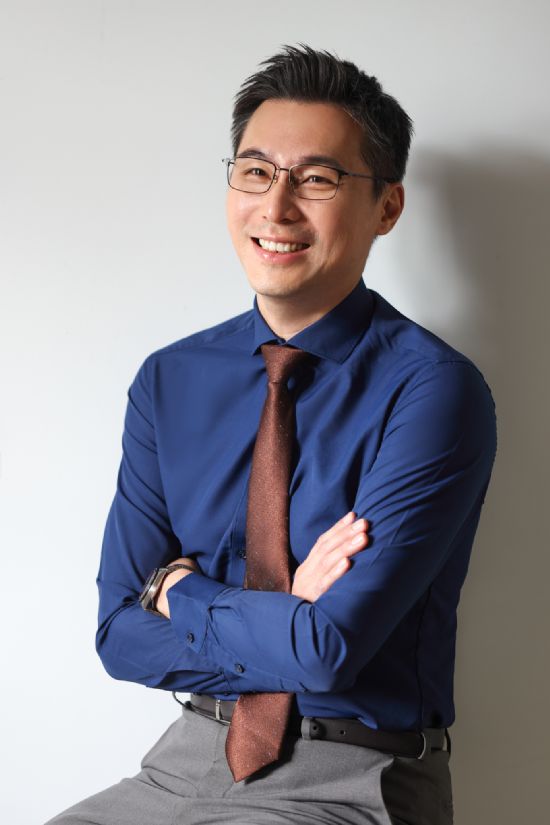Time slot's time in Taipei (GMT+8)
2025/11/23 08:00-12:30 Room 101 AB
- SYMPOSIUM 11&15 NEURODEGENERATION
Neurophysiological and Biomechanical Hallmarks of Neurodegenerative Disorders in Diagnosis and Therapeutics
- Time
- Topic
- Speaker
- Moderator
- 08:00-08:30
- To predict Alzheimer’s disease progression: what are accessible neurophysiological markers?
- Speaker:
Takenobu Murakami
- Moderator:
Ming-Kuei Lu
- Ming-Kuei Lu
- MD, PhD
-
Director, Division of Neurology, Taichung Municipal Geriatric Rehabilitation General Hospital, China Medical University
E-mail:mingkuei.lu@gmail.com
Executive Summary:
Dr. Lu graduated from China Medical University and received neurological resident training in China Medical University Hospital (CMUH), Taichung, Taiwan. In addition to the clinical practice experience, he also pursued his research training focusing on clinical neurophysiology. His research interests include pathophysiology of movement disorders and noninvasive neuromodulation. He applied EEG, TMS and MR-guided focused ultrasound to investigate and monitor neurodegenerative disorders, focusing on Parkinson’s disease and essential tremor. He has some publications regarding this field. He is currently a faculty of College of Medicine in CMU and an active member of Taiwan Society of Clinical Neurophysiology and Taiwan Movement Disorder Society.
Dr. Lu graduated from China Medical University and received neurological resident training in China Medical University Hospital (CMUH), Taichung, Taiwan. In addition to the clinical practice experience, he also pursued his research training focusing on clinical neurophysiology. His research interests include pathophysiology of movement disorders and noninvasive neuromodulation. He applied EEG, TMS and MR-guided focused ultrasound to investigate and monitor neurodegenerative disorders, focusing on Parkinson’s disease and essential tremor. He has some publications regarding this field. He is currently a faculty of College of Medicine in CMU and an active member of Taiwan Society of Clinical Neurophysiology and Taiwan Movement Disorder Society.
- Time
- Topic
- Speaker
- Moderator
- 08:30-09:00
- Oscillations in hyper-excitatory brain networks of Alzheimer’s disease
- Speaker:
Yi-Jen Wu
- Moderator:
Chou-Ching Lin
- Chou-Ching Lin
- MD PhD
-
Professor, Neurology, Department of Medicine, National Cheng Kung University
E-mail:CXL45@mail.ncku.edu.tw
Executive Summary:
Chou-Ching K. Lin received a Bachelor degree of Medicine from National Yang-Ming University, Taipei, Taiwan in 1988 and an MSc and PhD in biomedical engineering from Case Western Reserve University, Cleveland, OH, USA in 1994 and 1997, respectively. He is a professor in Department of Neurology and an adjunct professor in Department of Biomedical Engineering, National Cheng Kung University. His areas of interest include functional MRI, brain-computer interface (BCI), electrical stimulation of CNS and PNS, and neural network modelling of natural intelligence and artificial intelligence (AI).
Chou-Ching K. Lin received a Bachelor degree of Medicine from National Yang-Ming University, Taipei, Taiwan in 1988 and an MSc and PhD in biomedical engineering from Case Western Reserve University, Cleveland, OH, USA in 1994 and 1997, respectively. He is a professor in Department of Neurology and an adjunct professor in Department of Biomedical Engineering, National Cheng Kung University. His areas of interest include functional MRI, brain-computer interface (BCI), electrical stimulation of CNS and PNS, and neural network modelling of natural intelligence and artificial intelligence (AI).
- Time
- Topic
- Speaker
- Moderator
- 09:00-09:30
- Neurophysiology of cerebellar ataxias and gait disorders
- Speaker:
Ming-Kai Pan
- Moderator:
Tu-Hsueh Yeh
- Tu-Hsueh Yeh
- MD, PhD
-
Attending Physician, Department of Neurology, Taipei Medical University Hospital
Vice-President, Taipei Neuroscience Institute, Taipei Medical University
President, Taiwan Movement Disorder Society
E-mail:neuroyeh@gmail.com
Executive Summary:
Dr. Tu-Hsueh Yeh is a neurologist and educator with expertise in neurogenetics, neurodegenerative diseases, and movement disorders. He received his M.D. from Taipei Medical University and completed neurology training at Chang Gung Memorial Hospital (CGMH), where he began practicing in 1999. He earned his Ph.D. in neurophysiology from Chang Gung University in 2005, researching glutamate receptors and transporters after cerebral ischemia.
From 2006 to 2008, Dr. Yeh was a research fellow at Washington University in St. Louis, studying the NF1 gene’s role in neural development and tumorigenesis. Returning to Taiwan, he established a neurogenetics lab at CGMH. He also completed advanced training at Harvard Medical School and Thomas Jefferson University in autonomic and headache disorders.
Dr. Yeh’s clinical focus includes Parkinson’s disease and related neurodegenerative diseases. His research emphasizes neuroprotective mechanisms, experimental disease models, and genetic underpinnings of neurodegeneration and brain tumors.
He has held leadership roles including Chief of the Movement Disorders Division at CGMH, Associate Professor and Director of Neurology at Taipei Medical University, and Chair of Neurology at Taipei Medical University Hospital. He is currently Director of Medical Education at TMUH and Vice President of Teaching at the Taipei Neuroscience Institute.
Dr. Yeh serves as President of the Taiwan Movement Disorder Society and has long contributed to national neurology and headache societies. In 2022–2023, he led a health improvement initiative in Eswatini, Africa, focusing on postgraduate medical education and public health collaboration.
Research Interests:
Neurogenetics, Neurosciences, Brain stimulation
Dr. Tu-Hsueh Yeh is a neurologist and educator with expertise in neurogenetics, neurodegenerative diseases, and movement disorders. He received his M.D. from Taipei Medical University and completed neurology training at Chang Gung Memorial Hospital (CGMH), where he began practicing in 1999. He earned his Ph.D. in neurophysiology from Chang Gung University in 2005, researching glutamate receptors and transporters after cerebral ischemia.
From 2006 to 2008, Dr. Yeh was a research fellow at Washington University in St. Louis, studying the NF1 gene’s role in neural development and tumorigenesis. Returning to Taiwan, he established a neurogenetics lab at CGMH. He also completed advanced training at Harvard Medical School and Thomas Jefferson University in autonomic and headache disorders.
Dr. Yeh’s clinical focus includes Parkinson’s disease and related neurodegenerative diseases. His research emphasizes neuroprotective mechanisms, experimental disease models, and genetic underpinnings of neurodegeneration and brain tumors.
He has held leadership roles including Chief of the Movement Disorders Division at CGMH, Associate Professor and Director of Neurology at Taipei Medical University, and Chair of Neurology at Taipei Medical University Hospital. He is currently Director of Medical Education at TMUH and Vice President of Teaching at the Taipei Neuroscience Institute.
Dr. Yeh serves as President of the Taiwan Movement Disorder Society and has long contributed to national neurology and headache societies. In 2022–2023, he led a health improvement initiative in Eswatini, Africa, focusing on postgraduate medical education and public health collaboration.
Research Interests:
Neurogenetics, Neurosciences, Brain stimulation
- Time
- Topic
- Speaker
- Moderator
- 10:00-10:30
- Clinical profile and neurophysiological characteristics of Wilson’s disease in Taiwan
- Speaker:
Sung-Pin Fan
- Moderator:
Chin-Chang Huang
- Chin-Chang Huang
- E-mail:cch0537@cgmh.org.tw
- Time
- Topic
- Speaker
- Moderator
- 10:30-11:00
- To unravel Parkinsonian cardinal features: What are rigidity and bradykinesia meant?
- Speaker:
John Rothwell
- Moderator:
Tsu-Kung Lin
- Tsu-Kung Lin
- MD, PhD
-
Vice Superintendent, Kaohsiung Chang Gung Memorial Hospital
Professor, Kaohsiung Chang Gung Memorial Hospital, Department of Neurology
E-mail:tklin@cgmh.org.tw
Executive Summary:
Dr. Lin received his neurological training at Kaohsiung Chang Gung Memorial Hospital, Taiwan (1989-1994) and completed his PhD at Department of Biochemistry at University of Otago, New Zealand (1998-2002). He was the Chief of Neurology at the Kaohsiung Chang Gung Memorial Hospital, Taiwan from 2011-2017. Currently, he is serve as a Professor at Neurology Department of Kaohsiung Chang Gung Memorial Hospital and Vice superintendent of Kaohsiung Chang Gung Memorial Hospital. His major interests are in mitochondrial dysfunction and oxidative stress in Neurodegenerative diseases.
Dr. Lin received his neurological training at Kaohsiung Chang Gung Memorial Hospital, Taiwan (1989-1994) and completed his PhD at Department of Biochemistry at University of Otago, New Zealand (1998-2002). He was the Chief of Neurology at the Kaohsiung Chang Gung Memorial Hospital, Taiwan from 2011-2017. Currently, he is serve as a Professor at Neurology Department of Kaohsiung Chang Gung Memorial Hospital and Vice superintendent of Kaohsiung Chang Gung Memorial Hospital. His major interests are in mitochondrial dysfunction and oxidative stress in Neurodegenerative diseases.
- Time
- Topic
- Speaker
- Moderator
- 11:00-11:30
- Neurophysiology of Parkinson’s disease: the insights on advancing therapeutics
- Speaker:
Ritsuko Hanajima
- Moderator:
Kai-Hsiang Chen
- Kai-Hsiang Chen
- MD
-
eputy Director of Neurology Department, National Taiwan University Hospital Hsinchu Branch
E-mail:stanleychen1230@gmail.com
Executive Summary:
Dr. Chen graduated from Taipei Medical University and completed his neurological residency training at National Taiwan University Hospital in Taipei. Since 2012, he has served as an attending physician and movement disorder specialist in the Department of Neurology at National Taiwan University Hospital Hsinchu Branch. Dr. Chen acquired expertise in microelectrode recording and clinical deep brain stimulation (DBS) techniques under the guidance of Dr. Chun-Hwei Tai at National Taiwan University Hospital (NTUH) and established DBS system of NTUH Hsinchu in 2015. In the field of non-invasive neurostimulation, he has conducted extensive research on transcranial magnetic stimulation (TMS) and patterned repetitive TMS (rTMS) in collaboration with Professor Ying-Zu Huang from 2016. In addition to his clinical expertise, Dr. Chen pursued a research fellowship in Professor Robert Chen’s lab at the Krembil Brain Institute, University of Toronto from 2018 to 2019. His primary research interests focus on neuromodulation and electrophysiological assessment of movement disorders, utilizing techniques such as DBS, TMS, and low-intensity transcranial focused ultrasound (TUS). Additionally, he has explored the cortical plasticity effects of TUS and developed a novel patterned repetitive TUS protocol in collaboration with Professor Robert Chen. In 2020, Dr. Chen established his clinical neurophysiology lab, integrating electrophysiological assessments with advanced equipment, including multi-channel EMG, EEG, single/paired TMS, rTMS, evoked potentials, and gait analysis. His research encompasses a broad spectrum of movement disorders, such as parkinsonism, tremor, dystonia, functional movement disorders, and gait abnormalities. Dr. Chen has published numerous influential articles on the principles of electrophysiology in movement disorders and human cortical physiological function. He currently serves as the Deputy Director of the Department of Neurology at National Taiwan University Hospital Hsinchu Branch.
Dr. Chen graduated from Taipei Medical University and completed his neurological residency training at National Taiwan University Hospital in Taipei. Since 2012, he has served as an attending physician and movement disorder specialist in the Department of Neurology at National Taiwan University Hospital Hsinchu Branch. Dr. Chen acquired expertise in microelectrode recording and clinical deep brain stimulation (DBS) techniques under the guidance of Dr. Chun-Hwei Tai at National Taiwan University Hospital (NTUH) and established DBS system of NTUH Hsinchu in 2015. In the field of non-invasive neurostimulation, he has conducted extensive research on transcranial magnetic stimulation (TMS) and patterned repetitive TMS (rTMS) in collaboration with Professor Ying-Zu Huang from 2016. In addition to his clinical expertise, Dr. Chen pursued a research fellowship in Professor Robert Chen’s lab at the Krembil Brain Institute, University of Toronto from 2018 to 2019. His primary research interests focus on neuromodulation and electrophysiological assessment of movement disorders, utilizing techniques such as DBS, TMS, and low-intensity transcranial focused ultrasound (TUS). Additionally, he has explored the cortical plasticity effects of TUS and developed a novel patterned repetitive TUS protocol in collaboration with Professor Robert Chen. In 2020, Dr. Chen established his clinical neurophysiology lab, integrating electrophysiological assessments with advanced equipment, including multi-channel EMG, EEG, single/paired TMS, rTMS, evoked potentials, and gait analysis. His research encompasses a broad spectrum of movement disorders, such as parkinsonism, tremor, dystonia, functional movement disorders, and gait abnormalities. Dr. Chen has published numerous influential articles on the principles of electrophysiology in movement disorders and human cortical physiological function. He currently serves as the Deputy Director of the Department of Neurology at National Taiwan University Hospital Hsinchu Branch.

